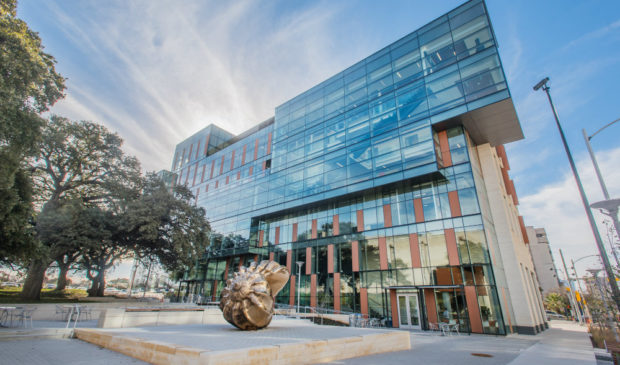Dell Med School using grant money for population, teen mental health
Friday, April 27, 2018 by
Chad Swiatecki A grant of nearly $1 million from the Michael and Susan Dell Foundation is paying for a pair of programs at the University of Texas’ Dell Medical School that will attempt to advance treatment of teenage mental health and the societal factors that impact the health of much of the Austin area’s 2 million residents.
The money will give up to two years of runway for the studies, which are based out of the medical school’s new Center for Youth Mental Health and the Department for Population Health.
The population health study will look for ways to gather large data sets not directly connected to patients’ medical records to study how factors such as proximity to transit corridors or quality of housing impact frequency of chronic conditions such as asthma and diabetes.
Anjum Khurshid, director of data integration at the medical school, said the program’s biggest value will come from finding ways to incorporate large amounts of aggregated data and incorporating them into the diagnosis and prevention of conditions that require expensive, lifelong treatment.
“The goal is to be able to make data available in normal delivery of care, because while we can offer large amounts of data, the question is how can we understand the most important factors?” Khurshid said. “Physicians are looking at them and managing care, but there are factors that are not part of medical records. … If we can provide that at the point of care, physicians can take that into account as they are administering care and prevent attacks, to reduce use of emergency room facilities.”
Khurshid said the data will be managed using nonrelational database technology on a level similar to that used by Google and Amazon, and that patients’ personal information won’t be made available for groups analyzing it to look for health trends.
With a large, diverse population of economically vulnerable people cycling through health agencies such as People’s Community Clinic, he said there is the potential to discover and prevent negative health outcomes with a higher occurrence in poor communities.
“Central Texas has lots of diversity and disparity in health outcomes,” he said. “Some populations, that is due to economics where you have higher health burdens than others. There are outcomes related to housing, financial situation and location, and using that is a unique opportunity we have.”
The teen mental health program was created to address the tendency of young adults who receive mental health treatment while younger to fall out of care after they turn 18. That gap in care is difficult to remedy and leads to higher instances of joblessness, drug and alcohol abuse, and homelessness, said Stephen Strakowski, MD, professor and chair of Dell Medical’s Department of Psychiatry.
To reverse that trend, the department is soliciting ideas from area health care and psychiatric professionals on how to modify existing treatment plans so they are appropriate for adults who are entering higher education, job training and other early adult milestones.
“For kids who are in care, the structure is based around children and feels too young, then they turn 18 and are in a structure for people who are 40 and have chronic mental illness like schizophrenia,” Strakowski said. “Neither side feels like it’s paying attention to their needs to start to build relationships and go to work. That leads to not being able to finish school or get meaningfully employed and they aren’t able to launch into adulthood.”
Strakowski said the medical school will use data from the pilot programs launched with the grant money to apply for federal funding that can pay for a study of five years or more. He said one desired result of the program is reversing one of the main causes for adults falling into homelessness, which is an acute problem in Austin and other large metropolitan areas.
“The goal is to get broader input from the community to see if there’s some innovative solutions that none of us have thought of,” he said. “It will be easier to prevent homelessness than treat it later. This is one way to help people to be successful and independent. Homelessness has multiple factors across age ranges, but we hope to have some impact.”
Photo via University of Texas Dell Medical School.
The Austin Monitor’s work is made possible by donations from the community. Though our reporting covers donors from time to time, we are careful to keep business and editorial efforts separate while maintaining transparency. A complete list of donors is available here, and our code of ethics is explained here.
You're a community leader
And we’re honored you look to us for serious, in-depth news. You know a strong community needs local and dedicated watchdog reporting. We’re here for you and that won’t change. Now will you take the powerful next step and support our nonprofit news organization?










